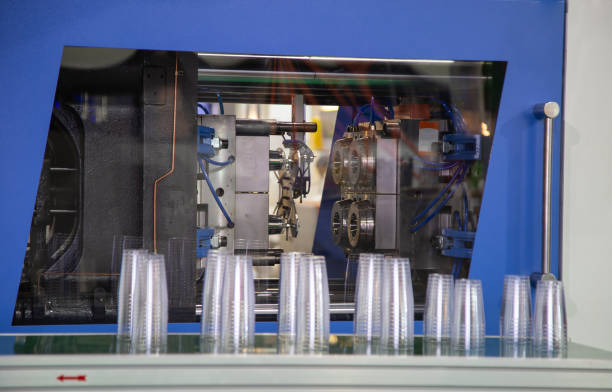When people ask what are industrial pipes, they are usually referring to large-scale piping systems designed for transporting fluids, gases, or solid particles across different industries. These pipes are not the same as standard household plumbing; instead, they are engineered to withstand extreme conditions such as high pressure, corrosive substances, and elevated temperatures. Industrial pipes are essential components in sectors like oil and gas, chemical processing, water treatment, power generation, construction, and manufacturing. Understanding their role, materials, and applications helps businesses select the right piping system to ensure efficiency, safety, and long-term reliability.
The term industrial pipes covers a broad category of materials and designs, ranging from metallic to non-metallic options. Unlike consumer-grade piping, which focuses mainly on affordability and basic functionality, industrial systems must meet strict performance standards. For instance, pipes used in the oil and gas industry require resistance to internal corrosion caused by hydrocarbons, while those in food processing plants must comply with sanitary and hygiene regulations. This diversity means that industrial pipes are not a single product but rather a family of solutions tailored to specific needs.

One of the most common materials used in industrial pipes is steel, particularly carbon steel and stainless steel. Carbon steel pipes are popular because of their durability and ability to handle high-pressure applications such as petroleum transport or power plant pipelines. Stainless steel, on the other hand, offers excellent corrosion resistance, making it suitable for chemical industries and environments with exposure to moisture or acidic compounds. Other metals, such as copper, nickel alloys, and titanium, are also used where specialized properties like thermal conductivity or resistance to seawater corrosion are required.
Non-metallic industrial pipes play an equally important role in modern industries. Plastic pipes, particularly those made from polyvinyl chloride (PVC), high-density polyethylene (HDPE), and polypropylene (PP), are valued for their lightweight structure, chemical resistance, and cost-effectiveness. For example, HDPE pipes are commonly used in water distribution, sewage systems, and natural gas transportation because they are flexible and resistant to cracking. Fiberglass reinforced pipes (FRP) are another option, offering both strength and resistance to corrosion, often applied in industries like desalination plants and chemical processing facilities.
When discussing what are industrial pipes, it is essential to mention their manufacturing methods. Industrial pipes can be seamless or welded. Seamless pipes are produced without a weld seam, making them stronger and better suited for high-pressure environments. Welded pipes, made by rolling and welding sheets of metal, are often more cost-effective and widely available in larger diameters. The choice between seamless and welded pipes depends on the operating conditions, budget, and safety requirements of the project.
Industrial pipes are not only about the materials but also about the design standards and regulations they must meet. International standards such as ASME, ASTM, API, and ISO govern the dimensions, pressure ratings, and quality assurance for piping systems. These standards ensure that pipes can perform safely under specific environmental and operational conditions. For instance, oil refineries and petrochemical plants follow strict guidelines to avoid leaks, which could cause severe accidents and financial losses.
Another critical aspect of industrial pipes is the variety of coatings and linings used to enhance their performance. Pipes exposed to corrosive environments are often lined with epoxy or polyethylene layers to extend their lifespan. In water treatment facilities, cement mortar lining may be applied inside pipes to prevent contamination and improve flow. Similarly, external coatings protect buried pipelines from soil chemicals and mechanical damage. Choosing the right coating is as important as choosing the base material itself.
The size and diameter of industrial pipes also vary depending on application. Smaller diameters are typically used in instrumentation and control systems, while larger diameters are necessary for bulk transportation of oil, gas, or water. The wall thickness, often referred to as schedule, directly impacts the pipe’s ability to handle pressure. For example, a thicker-walled steel pipe may be required in a high-pressure steam system, whereas a thinner-walled HDPE pipe might be suitable for municipal water distribution.
Industrial pipes are also integrated with fittings, valves, and flanges to create complete systems. Without these components, the pipe alone cannot function effectively. Valves regulate the flow of fluids, flanges allow easy assembly and disassembly, and fittings enable directional changes or branching. These accessories are designed to match the specifications of the pipes, ensuring compatibility and system integrity.
Modern industries increasingly demand sustainability, which also influences what are industrial pipes today. Manufacturers are developing eco-friendly materials and recycling programs for plastic pipes, while steel pipes are often reused and repurposed due to their high scrap value. Energy-efficient production methods and advanced coatings also contribute to reducing the environmental impact of industrial piping systems.
In addition, the role of digital technologies is transforming how industrial pipes are monitored and maintained. With sensors and IoT-enabled solutions, industries can now track the condition of pipelines in real-time, predicting issues such as leaks or corrosion before they become critical. This integration of technology helps businesses reduce downtime, lower maintenance costs, and enhance overall safety.
Ultimately, industrial pipes are more than just hollow cylinders that transport materials. They are engineered systems designed to operate in demanding environments, ensuring that industries like energy, construction, and manufacturing can function without interruption. Their variety in materials, standards, coatings, and applications highlights their importance as the backbone of modern infrastructure and industrial operations.



